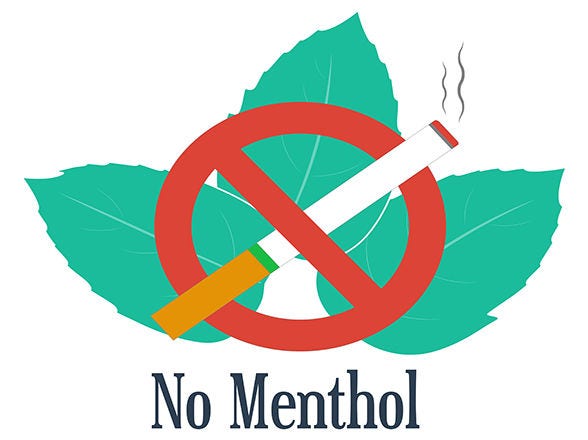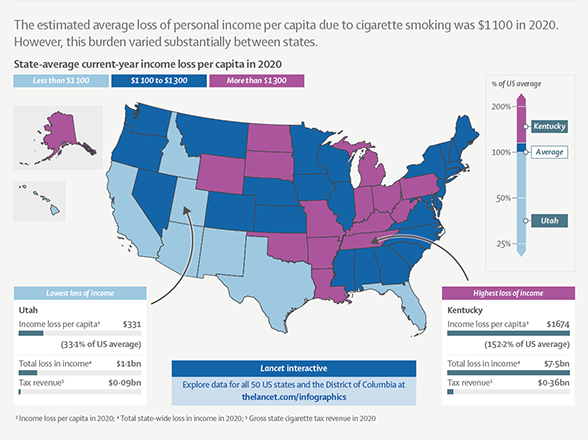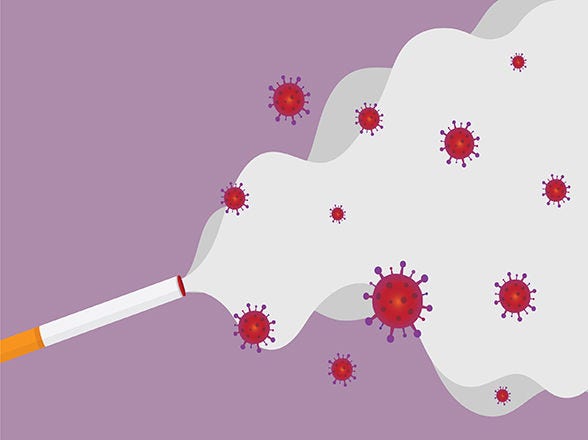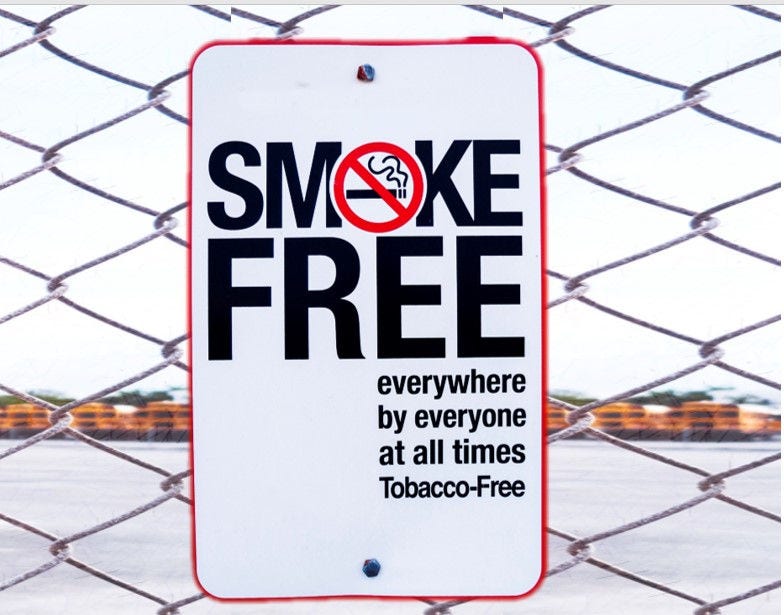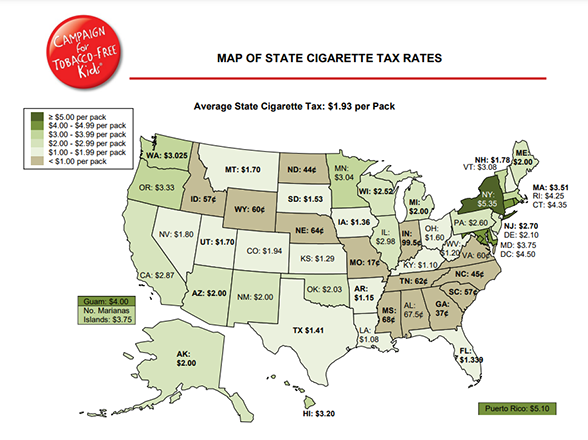Your gift is 100% tax deductible.
Tobacco Control Research
We put tobacco control research into action by collaborating with the American Cancer Society Cancer Action Network (ACS CAN) to promote evidence-based tobacco control advocacy.
What We Do
The American Cancer Society (ACS) Tobacco Control Research (TCR) team studies factors in the United States that predict what leads adults and adolescents to start and stop using any one of the many conventional or novel tobacco products. As part of this effort, we track the use of conventional tobacco products, such as cigarettes, cigars, and snuff along with more novel ones, such as electronic cigarettes (e-cigarettes), hookahs, and nicotine pouches.
For example, before new tobacco control policies are implemented, we evaluate how those policies may affect the use of tobacco and may lead to health and economic consequences. In the same way, after a new tobacco control policy in the United States is implemented, we evaluate its overall value in reducing the use of tobacco products for individuals, communities, and the nation.
Our Advocacy-Research Collaboration
The ACS TCR team studies tobacco control policies, related health and economic policies, and the activities of the tobacco industry through the lens of health equity. Our work is closely knit with the tobacco control advocacy efforts led by the American Cancer Society Cancer Action Network (ACS CAN), which is the ACS nonprofit, nonpartisan advocacy affiliate founded in 2001.
ACS CAN influences evidence-based policy changes at the federal, state, and local levels with legislative (through laws) and regulatory solutions (requirements issued when a law is passed to help the law be put into action) that reduce the cancer burden.
We give an overview of our partnership in action in “An Advocacy-Research Collaboration Model to Inform Evidence-Based Tobacco Control Efforts,” published in Tobacco Control in January 2023.
Experts with diverse backgrounds from ACS and ACS CAN align on the priorities of tobacco control while considering—or generating—evidence related to the intended, unintended, and potential implications of tobacco control efforts.
We describe our work as both:
- Research in action because our studies relate to timely scientific investigations of emerging or ongoing tobacco control milestones.
- Evidence-based advocacy in action because we use emerging scientific evidence from research to inform urgent tobacco-control efforts.
Glossary for Nonscientists
Featured Term:
Tobacco Control
Tobacco control can involve multiple actions to protect people from the effects of using tobacco products and exposure to secondhand smoke. These effects can include disease (morbidities), death (mortality), and economic consequences, such as lost wages due to sick leave and medical expenses to treat illnesses linked with using tobacco.
Tobacco-control actions that countries, states, and local jurisdictions can make include:
- Not allowing the sale of flavored tobacco products
- Requiring health warnings on packaging for all types of tobacco products
- Making it illegal to advertise or promote tobacco products and making it illegal for tobacco companies to sponsor events
- Making it illegal to sell tobacco products to minors
- Having rules about where people can smoke in public places to protect people from exposure to tobacco smoke
- Increasing the excise tax (taxes on particular goods or services) on tobacco products to make them less affordable
- Promoting tobacco cessation to help people quit smoking or stop using other forms of tobacco
- Continuous surveillance of the tobacco-product retail landscape
These actions may be practiced by federal, state, and local government agencies, community-based organizations, hospitals and clinics, businesses, and households.
How ACS Tobacco Control Research Supports ACS CAN Tobacco-Control Advocacy
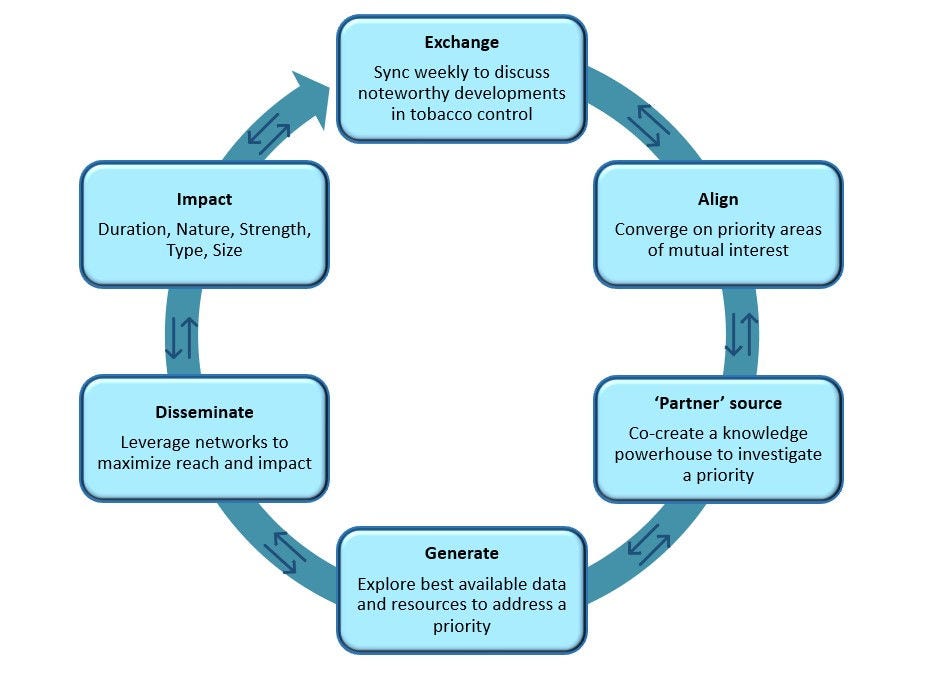
Our ACS Tobacco Control team meets our ACS CAN advocacy partners every week to discuss advances in tobacco control efforts in the United States. We share and update the group with emerging research findings, proposed policies, interpretations of events and news, and potential regulatory implications of a wide variety of nicotine-delivery products in the market.”
The ACS Tobacco Control Research Team
These tobacco control researchers are part of the larger Surveillance, Prevention, & Health Services Research (SPHeRe) department:
Nigar Nargis, PhD, Senior Scientific Director
J. Lee Westmaas, PhD, Scientific Director
Minal Patel, PhD, MPH, Senior Principal Scientist
Tyler Nighbor, PhD, Principal Scientist
Samuel Asare, PhD, Principal Scientist
Zheng (Ashley) Xue, MSPH, Senior Associate Scientist
Shanshan Wang, MPH, Associate Scientist
Eva Orr, MPH, Associate Scientist
The ACS CAN Tobacco Control Collaborators
ACS CAN has successfully advocated for billions of dollars in cancer research funding, expanded access to quality affordable healthcare, and advanced proven tobacco control measures. Here are some ACS CAN staff members who collaborate with the ACS on tobacco control.
Lisa LaCasse, MBA, President, ACS CAN
Kirsten Sloan, Managing Director, Public Policy
Cathy Callaway, Senior Director, State & Local Campaigns
Mary Rouvelas, Managing Counsel & Legal Advocacy Director
Catherine McMahon, Principal, Policy Development
Deanna Henkle, Senior State and Local Campaigns Manager
Christy Cushing, MPP, Senior Analyst, Prevention & Health Equity

